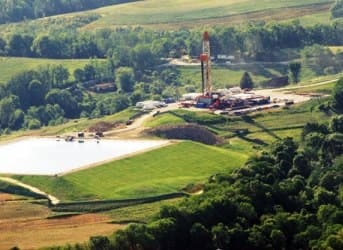In many countries, the contentious issue of using hydraulic fracturing, or “fracking,” to develop otherwise unexploitable natural gas reserves has led to policy debates of prosperity versus potential environmental damage.
For countries faced with massive hydrocarbon import bills the issue is particularly acute, and many countries are keeping their fingers crossed about the practice. For South Africa, a net importer of energy with about 90 percent of its power supply being coal-based, any and all alternatives are under consideration.
South Africa’s Department of Mineral Resources in April 2011 placed a moratorium on hydraulic fracturing. Two weeks ago the DMR lifted the moratorium, specifically on fracking for shale natural gas and last week released the detailed version of the report it commissioned on hydraulic fracturing.
The DMR report, “Investigation of hydraulic fracturing in the Karoo Basin of South Africa” noted, "The study comprises reports written by specialists in their various fields as well as the results of a study tour to the United States which included field trips to Pennsylvania (Marcellus Shale) and Texas (Eagle Ford Shale) and visits to the Environmental Protection Agency and the Railroad Commission of Texas, both being US regulatory organizations directly involved with shale gas exploitation.” The report further continues, “The primary conclusion reached in this report is that South Africa’s regulatory framework must be robust enough to ensure that, if hydraulic fracturing associated with shale gas exploration and exploitation were approved, any resultant negative impacts would be mitigated. This will require a comprehensive review of the adequacy of the existing framework in order to identify any shortfalls or omissions and to ensure that it is sufficiently detailed and specific. The use of existing regulations from mature regulatory environments to inform the development of South African regulations in this matter is recommended.”
There are certainly reserves to exploit, as, according to the estimates one reads, South Africa ranks among the top ten global owners of shale gas resources, perhaps even as high as number five. The U.S. government Energy Information Administration’s initial estimates of South Africa shale gas reserves are that there are technically recoverable a massive 485 trillion cubic feet (tcf) of gas in the Karoo Basin.
The issue has not been without controversy. In May South African Energy Minister Dipuo Peters told reporters, "As the department responsible for the security of the country’s energy supply, we are conflicted when it comes to issues related to shale gas. We are conflicted because we've got to look at South Africa becoming self-reliant in terms of energy resources, and if we are informed that there is potential for this resource, it is correct for us to encourage the Departments of Science and Technology and Mineral Resources to make it possible if it is proven. Let's extract it and let's make sure that our own National Environmental Management Act makes it possible that we extract it safely. While we're waiting for a report from the Cabinet, it is my wish and prayer that when the report is tabled, if it says that the gas is there, we can extract it for the benefit of the people of South Africa. If it's in the best interest for South Africa, let's do it but I am committed to the decision of the Cabinet."
And the South African government is not fully onboard to give fracking companies a free ride. On 11 September Minister of Mineral Resources Susan Shabangu told journalists about the DMR report’s investigation of environmental and social effects of hydraulic fracturing in the Karoo Basin that the report states certain conditions which may lead to the exploration process being halted, noting, "We are a water scarce country. If the process is such that there is a threat to water in South Africa, we would have to stop the process.”
And NGOs are lining up to add their voices to the debate. Treasure the Karoo Action Group (TKAG) chairman Jonathan Deal said that the government was “swallowing the pitch” made in 2010 by five international energy firms, including Shell, to begin developing the Karoo’s gas assets, who presented themselves as “philanthropists” but had no interest in the country. Deal added “The logic of lifting a moratorium, issuing licenses and then only consulting with the public doesn’t make any sense,” noting that TKAG would consider resorting to litigation if Shabangu issues licenses and “ignores the many appeals that she is going to receive,” as the government’s decision showed that they were “desperately chasing energy and jobs” when there are viable alternatives that could produce energy and jobs more quickly, and with much less environmental risk.
At present it is anything but clear whose vision of south African shale gas production will prevail – the DMR’s, Shell or TKAG’s. What is clear at this stage however is that the debate is far from over.
By. John C.K. Daly of Oilprice.com


















